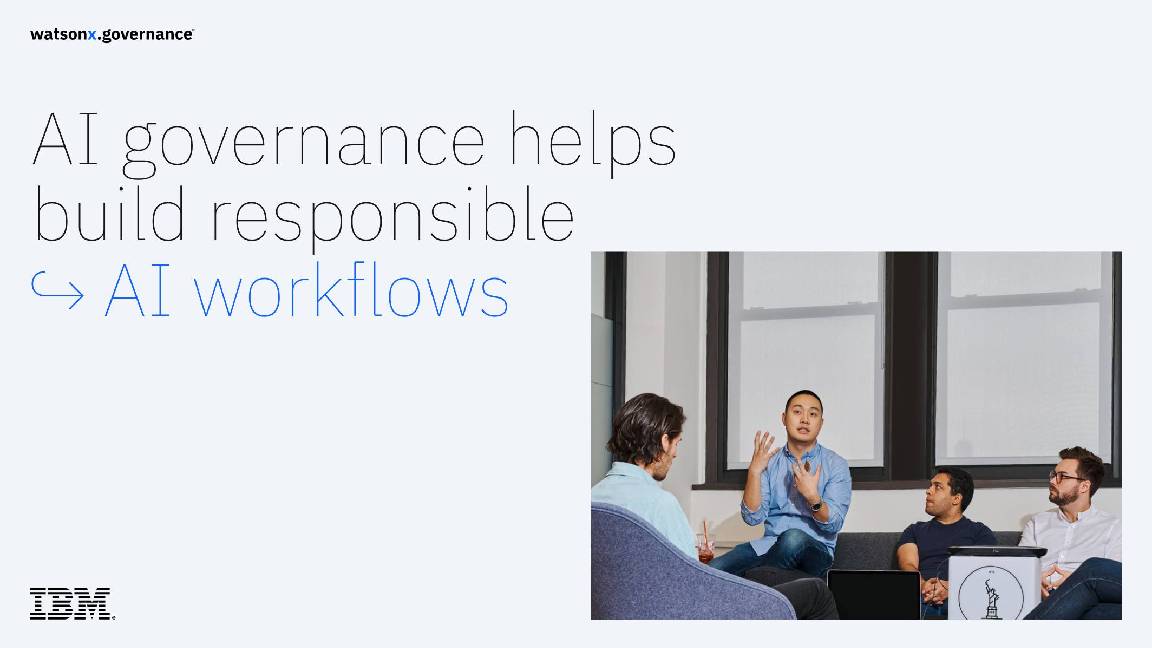Generative AI could be the key to delivering a four-day working week
Firms considering a four-day working week could look to automation to ease the process and reduce staff workloads


Productivity gains delivered by generative AI tools could enable millions of workers to have a four-day working week, according to new research.
Analysis from Autonomy found that the increased use of generative AI tools could cut a whole day’s work for around 8.8 million workers across the UK within the next decade.
Productivity gains through generative AI could also unlock an average 10% reduction in working hours for an additional 27.9 million UK employees, the study found.
This 10% reduction would equate to working hours being cut for around 88% of the UK’s current workforce, which stands at roughly 32 million, Autonomy said.
Will Stronge, director of research at Autonomy, said the potential productivity boosts afforded by generative AI tools could mark a step change in working culture for millions across the country.
“Our research offers a fresh perspective in debates around how AI can be utilized for good,” he said.
“A shorter working week is the most tangible way of ensuring that AI delivers benefits to workers as well as companies. If AI is to be implemented fairly across the economy, it should usher in a new era of four-day working weeks for all.”
Sign up today and you will receive a free copy of our Future Focus 2025 report - the leading guidance on AI, cybersecurity and other IT challenges as per 700+ senior executives
The report provides a tangible insight into the broader benefits of generative AI tools in the workplace amidst a period of lingering concerns over AI-related job losses and workforce upheaval, Stronge added.
Autonomy’s study noted that concerns over job cuts are a key factor in employee hesitancy on the integration of generative AI.
The study pointed to IMF research that found the US, UK, and other advanced economies are at particular risk of “adverse labor market effects” with the advent of generative AI.
“This is due to a high number of jobs in AEs being susceptible - on a task level - to AI-augmentation or replacement, putting those workers at risk of displacement or reduced hours,” the study said.
This IMF study aligns with research from Goldman Sachs in early 2023 which warned around 300 million ‘knowledge workers’ globally could face job losses due to automation in the coming decade.
The benefits of a four-day working week
Autonomy said previous studies show “a great many kinds of firms simply do not need to spend extra money, or lose productivity, when they shift to short hours for their staff”.
A reduction in working hours typically improves employee health, loyalty, and retention, and offers a “significant boost to performance”.
A trial scheme launched in 2022 which saw firms across the country switch to this working pattern produced promising results.
The six-month trials saw 92% of firms opting to retain the practice due to the benefits it produced for employees
RELATED RESOURCE

Gain greater trust in your AI
With this in mind, organizations that view the introduction of generative AI as a means to boost productivity - and not a technology to replace roles - can deliver impactful results.
“Such a policy offers the possibility of avoiding mass unemployment (and all the social and political effects of this), reducing widespread mental health illnesses as well as physical ailments associated with overwork and creating significant additional free time for democracy, leisure consumption and social cohesion in general,” the study said.
Autonomy noted that work-related stress, anxiety, and depression constitute “one of the most significant labor market issues” currently facing the UK at present.
Therefore, the introduction of generative AI could play a key role in reducing strain on the workforce long-term.
Generative AI productivity gains
The rapid integration of AI tools in businesses globally has shown to unlock significant productivity gains for staff.
Research from Slack in May 2023 found staff at companies adopting generative AI tools are 90% more likely to report higher levels of productivity.
The firm’s State of Work report, which polled more than 18,000 desk workers globally, found that staff are increasingly optimistic about the prospect of generative AI tools being adopted by their employers.
More than three-quarters (77%) of respondents said that the ability to automate routine tasks would drastically improve overall productivity.
In addition, the study found that those currently using automation in the workplace estimate they save an average of 3.6 hours every week, equivalent to around one month each year saved due to automation.

Ross Kelly is ITPro's News & Analysis Editor, responsible for leading the brand's news output and in-depth reporting on the latest stories from across the business technology landscape. Ross was previously a Staff Writer, during which time he developed a keen interest in cyber security, business leadership, and emerging technologies.
He graduated from Edinburgh Napier University in 2016 with a BA (Hons) in Journalism, and joined ITPro in 2022 after four years working in technology conference research.
For news pitches, you can contact Ross at ross.kelly@futurenet.com, or on Twitter and LinkedIn.
-
 What is Microsoft Maia?
What is Microsoft Maia?Explainer Microsoft's in-house chip is planned to a core aspect of Microsoft Copilot and future Azure AI offerings
-
 If Satya Nadella wants us to take AI seriously, let’s forget about mass adoption and start with a return on investment for those already using it
If Satya Nadella wants us to take AI seriously, let’s forget about mass adoption and start with a return on investment for those already using itOpinion If Satya Nadella wants us to take AI seriously, let's start with ROI for businesses
